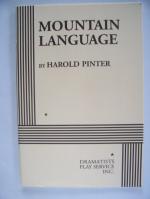|
This section contains 508 words (approx. 2 pages at 400 words per page) |

|
Theatre of the Absurd
This term, coined by Martin Esslin who wrote The Theatre of the Absurd (1961), is applied to plays that focus on and reflect the absurd nature of the human condition. The roots of this type of literature can be found in the expressionist and surrealist movements as well as in the existential philosophy that emerged from the theories of nineteenth-century Danish theologian Søren Kierkegaard, and German philosophers Martin Heidegger and Friedrich Nietzsche. Dramatists associated with this group include Samuel Beckett, Eugene Ionesco, Günter Grass, Jean Genet, Edward Albee, N. G. Simpson, and Pinter.
Absurdist plays portray a specific vision of the condition and existence of men and women and an examination of their place and function in life. They reject the notion that humans are rational beings operating in an intelligible universe that maintains a logically ordered structure. Absurdist playwrights present...
|
This section contains 508 words (approx. 2 pages at 400 words per page) |

|




